International Advisory Board
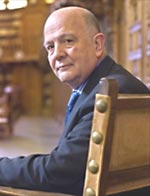
|
Manuel Alcántara Sáez (Spain) Director, Latin American Parliamentary Elites Project, Catedrático; Department of General Public Law, the University of Salamanca, Spain. Professor Alcántara has taught at the Universidad Complutense de Madrid, Georgetown University and The Institute of Sciences Politiques, Paris and Lille, France, among others, and has been Visiting Fellow of the Imperial University of Tokyo (1991), The University of North Carolina at Chapel Hill (1992-93) and The Kellogg Institute at the University of Notre Dame (2000 and 2007). Professor Alcántara has published extensively on electoral, party, and governability issues in Latin America and Spain, and his most recent books include ¿Instituciones o máquinas ideológicas? Origen, programa y organización de los partidos políticos latinoamericanos (2004), Gobernabilidad, crisis, y cambio (2004) and Sistemas políticos de América Latina (2008). He is editor of Politicians and politics in Latin America (2008), and co-editor of Partidos Políticos de América Latina (2001), Chile: política y modernización democrática (2006), and A democracia brasileira, and Balanço e perspectivas para o século 21 (2007). Email: malcanta@usal.es |
|
|
|

|
Christopher J. Anderson (U.S.A.) Professor of Government, Director, Cornell Institute for European Studies; Faculty Affiliate, Center for the Study of Inequality; Faculty Fellow, Institute for the Social Sciences, 2007-10, Cornell University. A native of Germany, Professor Anderson studied political science at the University of Cologne, and received his Ph.D. from WashingtonUniversity in St. Louis. Professor Anderson's research examines the micro-foundations of democracy and political economy, with a focus on issues of legitimacy, welfare states, and inequality in the European Union and the OECD countries. He has received grants from the European Union, German Academic Exchange Service (DAAD) and the U.S. National Science Foundation. His most recent books are Losers' Consent: Elections and Democratic Legitimacy (Oxford University Press; with André Blais, Shaun Bowler, Todd Donovan, and Ola Listhaug), and Democracy, Inequality, and Representation: A Comparative Perspective (Russell Sage Foundation; with Pablo Beramendi). Anderson is the recipient of the American Political Science Association's Heinz Eulau Award for the best article published in the American Political Science Review, the Best Article Award from the Journal of Politics, and the Emerging Scholar Award from the APSA Section on Elections, Public Opinion, and Voting Behavior. Anderson has served as President of the American Political Science Association's Section on European Politics and Society, and on the editorial boards of the American Journal of Political Science, Electoral Studies, European Union Politics, and the Journal of Politics. Email: christopher.anderson@cornell.edu |
|
|
|
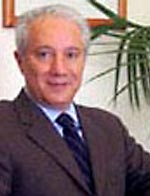
|
Ulises Beltrán Ugarte (Mexico) Professor of Political Science, CIDE, Mexico; Board of Directors, Roper Center. Dr. Beltrán studied sociology at UNAM in Mexico City and received his Ph.D. in Economic History from the University of Chicago. He is a professor and research affiliate in the Department of Political Science at the Centro de Investigación y Docencia Económicas (CIDE) in Mexico City. He has also been a professor at the Colegio de México and the ITAM. He is general director of BGC, Beltrán y Asociados, S.C., a public opinion and consulting firm in Mexico. He worked as Technical Advisor to Presidents Carlos Salinas (1988-1994) and Ernesto Zedillo (1994-2000), assessing, analyzing, and advising on public opinion in Mexico. He has published studies on public opinion, voting behavior, Mexican political attitudes, and the influence of the media on public opinion. He is a member of the Planning Committee for the Comparative Study of Electoral Systems (CSES) and on the Board of Directors for the Roper Center for Public Opinion Research. Email: ulises.beltran@cide.edu |
|
|
|
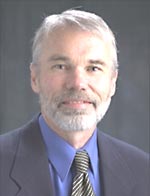
|
Michael Bratton (U.S.A.) University Distinguished Professor of Political Science and African Studies, Michigan State University and founder of the Afrobarometer. Professor Bratton, who received his Ph.D. in Political Science from Brandeis University, is the author of four books, most recently Public Opinion, Democracy and Markets in Africa (Cambridge University Press, 2005, with Robert Mattes and E. Gyimah-Boadi) and over sixty articles and chapters, including in The American Journal of Political Science, World Politics, Comparative Politics, Comparative Political Studies, World Development, The Journal of Democracy, and The British Journal of Political Science. Until 2008 he served as the executive director of the Afrobarometer, a cross-national survey research project on public opinion in Africa. Email: mbratton@msu.edu |
|
|
|
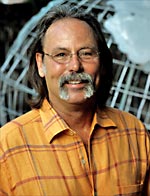
|
James L. Gibson (U.S.A.) Sidney W. Souers Professor of Government; Professor, African and African American Studies Program, Washington University; Professor Extraordinary in Political Science, Stellenbosch University, South Africa. Professor Gibson is widely recognized as among the leading scholars in world in the fields of political tolerance, racial justice, and comparative public opinion. His most recent books include Overcoming Historical Injustices: Land Reconciliation in South Africa (2009, Cambridge University Press); with Gregory A. Caldeira, Citizens, Courts, and Confirmations: Positivity Theory and the Judgments of the American People (2009, Princeton University Press); Overcoming Apartheid: Can Truth Reconcile a Divided Nation? (2004, Russell Sage Foundation); and with Amanda Gouws, Overcoming Intolerance in South Africa: Experiments in Democratic Persuasion (2003, Cambridge University Press). He has published around 100 articles in the top academic journals and law reviews. He holds or has held major grants from the National Institute of Health, the U.S. National Science Foundation, the Ford Foundation and others. He serves or has served on the editorial board of the American Political Science Review, the American Journal of Political Science, Law and Society Review, Political Psychology and has served on the National Science Foundation Advisory Panel for Law and Social Sciences. Email: jgibson@wustl.edu |
|
|
|
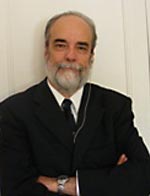
|
Luis E. González (Uruguay) Professor of Social Sciences at the Universidad Católica and of Political Science at the Universidad de la República, Montevideo, Uruguay. Professor González received his Ph.D. in Political Science with distinction from YaleUniversity under Juan Linz, and an M.A. in Sociology at the Fundación Bariloche in Argentina. He has been a Visiting Fellow at the Helen Kellogg Institute for International Studies, University of Notre Dame. He is the author of Political Structures and Democracy in Uruguay as well as other books and articles on Uruguayan and Honduran politics, Central American party systems and comparative Latin American politics. Among his most recent studies is a Kellogg Working Paper, "Political Crises and Democracy in Latin America since the end of the Cold War," a chapter in the Desarrollo Humano en Uruguay: 2008 published by the UNDP and A Challenge for Democracy: Political Parties in Central America, Panama and the Dominican Republic (coedited), published jointly by the IDB, OAS and the UNDP. He is co-founder and director of CIFRA, a Uruguayan consulting and polling firm. He has conducted applied research on elites in most Latin American countries, and since 1989 he has been known as a leading political pollster and quoted by newspapers in Latin America, Spain and the US. He is a political columnist for Uruguayan TV, a radio commentator, and a print media columnist. He has regularly consulted for the UNDP. Email: gonzalez@cifra.com.uy |
|
|
|
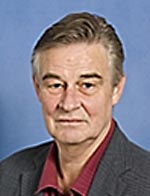
|
Sören Holmberg (Sweden) Professor of Political Science at Göteborg University, Sweden; Leader of the Swedish National Election Studies (SNES) and Chairman, The Democracy Statistics Board of Sweden; Member of the Royal Norwegian Society of Sciences and Letters; and Member of the Swedish Royal Academy of Letters, History and Antiquities. Professor Holmberg did graduate studies at the University of Michigan and received his Ph.D. from Göteborg University, Sweden. He was awarded the Wallin Prize by the Royal Academy of Arts and Sciences and the Royal Medal for Research on Democracy in 2004. He has been a visiting scholar at HarvardUniversity, University of Uppsala, the Brookings Institution, Claremont College Graduate School, University of Aberdeen, and Georgetown University. He has written 36 books and over 80 articles. The books include Policy Representation in Western Democracies (Oxford University Press), The Political System Matters: Social Psychology and Voting Behavior in Sweden and the United States (Cambridge University Press). Email: soren.holmberg@pol.gu.se |
|
|
|
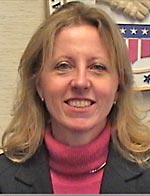
|
Deborah Kennedy-Iraheta (U.S.A.) Acting Assistant Administrator, Bureau for Latin America and the Caribbean; U.S. Agency for International Development (USAID) since January 2008. Ms. Kennedy-Iraheta is the Acting Assistant Administrator for the Bureau for Latin America and the Caribbean, a position she assumed in January 2009. She became Senior Deputy Assistant Administrator for the Bureau in July 2008. Prior to this, she served as the Mission Director for USAID/El Salvador – one of USAID's 11 regional platforms, with responsibility for the USAID/El Salvador bilateral program, the Central America-Mexico regional program, and the provision of regional support services to other USAID missions in Central America and Mexico. As Mission Director, she managed a $45 million program of bilateral and regional activities that focus on accelerating economic growth and prosperity by promoting democracy, expanding the benefits of trade-led growth, and contributing to healthier and better-educated people. Ms. Kennedy- Iraheta previously served as the Acting Deputy Assistant Administrator for the Bureau for Asia and the Near East Bureau, serving concurrently as the Office Director for East Asian Affairs. In this position, she provided leadership and support for USAID missions and programs in East Asia and the Pacific, including Burma, Vietnam, and other non-presence countries. In 2005, she also served as the Chief Operating Officer for the USAID Tsunami Relief and Reconstruction Task Force. From 1999 -2004, Ms. Kennedy- Iraheta was the Deputy Mission Director for the USAID Mission in Guatemala, where she directed a $100 million program supporting the Guatemalan peace accords and managed day-to-day operations for the mission. A native of Washington, D.C., now resident of Virginia, Ms. Kennedy-Iraheta received her bachelor's degree in economics and international public policy from George Mason University and her master's degree in management from the University of Phoenix in 2006. Email: dkennedy@usaid.gov |
|
|
|
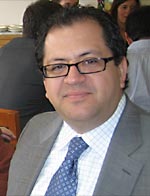
|
Luis F. López-Calva (Mexico) Chief Economist for Latin America and the Caribbean, UNDP. Luis F. López-Calva is Chief Economist at the Regional Bureau of Latin America and the Caribbean of the United Nations Development Programme (UNDP). During 2006-2007 he was a Visiting Scholar at the StanfordCenter for International Development at StanfordUniversity. Until December 2006 he was Associate Professor and Chair of the Masters in Public Economics in the Graduate School of Public Affairs of the Tecnológico de Monterrey, Mexico City Campus. Between 2002 and 2006 he collaborated as Director of the Human Development Research Office in Mexico (UNDP-Mexico). López-Calva has also been Professor of Economics at the Universidad de la Américas en Puebla and El Colegio de México. He has published in both national and international journals and edited volumes, on issues related to child labor, poverty, institutional economics and economic development. He has published three books, on Economic Integration of the Mexico and California Economies, Child labor in Latin America and the Measurement of Human Development in Mexico, the last one co-edited with Miguel Szekely. López-Calva has a B.A. in Economics from the Universidad de las Américas Puebla, has a Masters in Economics from BostonUniversity, and a Masters and Ph.D. in Economics from CornellUniversity. Email: luis.lopez-calva@undp.org |
|
|
|
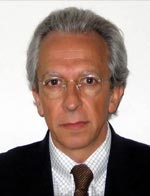
|
Eduardo Lora (Colombia) Chief Economist a.i. and General Manager of the Research Department, Inter-American Development Bank. Eduardo Lora is the Chief Economist a.i. and General Manager of the Research Department at the Inter-American Development Bank in Washington, DC. He received his Masters (M.Sc.) from the London School of Economics in 1982 and was a visiting researcher at Oxford University in 1989. Prior to joining the Bank in 1996 he served five years as Executive Director of Fedesarrollo, one of the most important research centers in Latin America. He has written various textbooks including Técnicas de Medición Económica (Methods of Economic Measurement), which is now in its fourth edition and has been reprinted 12 times. He has edited a dozen books on economic and social policy issues, including The State of State Reform in Latin America and Paradox and Perception. He has been the academic coordinator of the following issues of the IDB's flagship annual publication: Latin America after a Decade of Reforms (1997), Facing Up to Inequality in Latin America (1998/99), Development Beyond Economics (2000), Competitiveness: The Business of Growth (2001) and Beyond Facts: Understanding Quality of Life (2008). He has a regular column in the Colombian magazine Dinero and has published numerous academic articles. His academic and professional awards include the title of "Distinguished Alumnus" of the London School of Economics. Email: EDUARDOL@iadb.org |
|
|
|
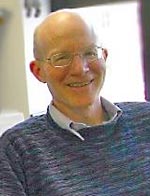
|
Scott Mainwaring (U.S.A.) Eugene Conley Professor of Political Science at the University of Notre Dame, and former Director of the Kellogg Institute for International Studies (1997-2002, 2003-08, 2009-present). Professor Mainwaring received his Ph.D. from Stanford University, after both undergraduate and graduate work at YaleUniversity. His books include Democratic Governance in Latin America (Stanford University Press, 2010, coedited); The Crisis of Democratic Representation in the Andes (Stanford University Press, 2006, coedited); The Third Wave of Democratization in Latin America: Advances and Setbacks (Cambridge University Press, 2005, coedited), Democratic Accountability in Latin America (Oxford University Press, coedited, 2003), Christian Democracy in Latin America (Stanford University Press, coedited, 2003), Rethinking Party Systems in the Third Wave of Democratization: The Case of Brazil (Stanford University Press, 1999); Presidentialism and Democracy in Latin America (Cambridge University Press, coedited, 1997); Building Democratic Institutions: Party Systems in Latin America (Stanford University Press, 1995, coedited), Issues in Democratic Consolidation: The New South American Democracies in Comparative Perspective (University of Notre Dame Press, 1992, coedited), The Progressive Church in Latin America (University of Notre Dame Press, 1989, coedited), and The Catholic Church and Politics in Brazil, 1916-1985 (Stanford, 1986). He has published articles in The British Journal of Political Science, Comparative Politics, Comparative Political Studies, and many other journals. Email: smainwar@nd.edu |
|
|
|
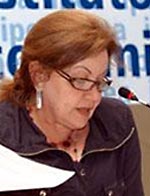
|
Rachel Meneguello (Brazil) Professor of Political Science, Director of the Center for Studies on Public Opinion (CESOP) at the University of Campinas (UNICAMP), Brazil and editor of the journal OPINIÄO PÚBLICA. Professor Meneguello received her doctorate from the Universidade Estadual de Campinas (Brazil). Between 2004 and 2008 she served on the Board of Directors of the Brazilian Political Science Association and is Member of the Executive Committee of Asociación Latinoamericana de Ciencia Política (ALACIP). Her publications deal mainly with political parties, political behavior and mass support for democracy, and include over thirty articles and four books, among them PT - a formaçäo de um partido e Partidos e Governos no Brasil Contemporâneo. She was twice awarded the Elizabeth Nelson Prize from the World Association of Public Opinion Research (WAPOR) and has been awarded several research grants from the CNPq for studies on democracy and party systems. She is the Brazil country coordinator for the Comparative Study of Electoral Systems (CSES). Email: racael@unicamp.br |
|
|
|
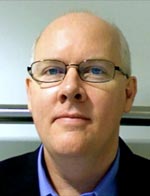
|
Timothy J. Power (Great Britain) Director of the Latin American Centre at the University of Oxford; a fellow of St Cross College and a member of the Department of Politics and International Relations at Oxford. Professor Power received his Ph.D. from the University of Notre Dame. From 2004 to 2006 Professor Power served as President of the Brazilian Studies Association, and a Member of the Executive Committee of Asociación Latinoamericana de Ciencia Política (ALACIP). He is currently an Associate Fellow at Chatham House, the Royal Institute of International Affairs. Dr. Power's research interests include democratization, political institutions, and Brazilian politics and government, and he serves on the editorial boards of Latin American Politics and Society and Journal of Politics in Latin America. He has been a Visiting Fulbright Professor at the Graduate Program in Political Science, Federal University of Rio Grande so Sul and also a Visiting Fulbright Professor, Department of Political Science and International Relations, University of Brasília, Brazil. He has published over 25 articles and his books include The Political Right in Postauthoritarian Brazil: Elites, Institutions, and Democratization and Democratic Brazil Revisited (University of Pittsburgh Press, 2008). Email: timothy.power@lac.ox.ac.uk |
|
|
|

|
Karen Remmer (U.S.A.) Professor of Political Science at Duke University; Editorial Board, The American Political Science Review. Professor Remmer received her Ph.D. from the University of Chicago. She is the author of Military Rule in Latin America and Party Competition and Public Policy and has published articles on political economy and institutional change in Latin America in the American Political Science Review, American Journal of Political Science, Journal of Politics, Comparative Politics, World Politics and many other academic journals. Her current research focuses on elections, political representation, and public spending in Latin America. She has received multiple grants from the U.S. National Science Foundation, and currently serves on the editorial boards of World Politics, American Political Science Review, Journal of Politics, and International Studies Quarterly. Email: karen.remmer@duke.edu |
|
|
|
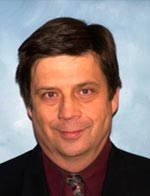
|
Nat Stone (Canada) Manager, Knowledge and Practices, Public Opinion Research Directorate, Government Information Services Sector, Public Works and Government Services, Canada. Professor, Marketing and Business Intelligence Research Program, School of Business, Algonquin College, Ottawa, Ontario, Canada. Nat Stone has been active in public opinion research for 23 years and has served at several departments of the Government of Canada, including 12 years with the Canadian Department of Foreign Affairs and International Trade. Since 2006, he has been responsible for outreach and knowledge management in areas related to public opinion research and other types of research at the Public Opinion Research Directorate of the Canadian Government. In previous positions, he was also extensively involved with research with Aboriginal people in Canada and residents of the Canadian North. Mr. Stone has a Master of Arts in the Social Sciences from the University of Chicago and an International MBA from the University of Ottawa. Nat Stone speaks Spanish in addition to his native English and French. Email: Nat.Stone@tpsgc-pwgsc.gc.ca |
|
|
|
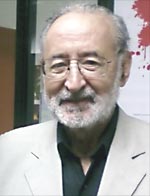
|
Edelberto Torres-Rivas (Guatemala) Former Secretary General, FLACSO, currently UNDP, Guatemala. Widely viewed as the founder of Central American sociology, for many years Dr. Torres-Rivas was the Secretary General of FLACSO, Costa Rica. His seminal work, History and Society in Central America, has been translated and republished on numerous occasions. He has also published Repression and Resistance: the Struggle for Democracy in Central America; Guatemala: Causas y Orígenes del Enfrentamiento Armado Interno (from the Guatemalan Truth Commission), Cuadernos del presente imperfecto: Las Izquierdas, as well as dozens of articles. His career as a social scientist began in exile in Chile, where he helped found FLACSO, while associated with Fernando Henrique Cardoso. He later took charge of the Programa Centroamericano de Ciencias Sociales del Consejo Superior Universitario Centraoamericanos, CSUCA. His most recent book, La piel de Centroamérica, is a social and economic history of Central America from 1930 to 2005. Email: edelberto.torres@undp.org.gt |
|
|
|
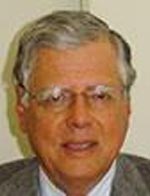
|
Miguel Urrutia Montoya (Colombia) Professor of Economics, Universidad de Los Andes, Bogotá Colombia, former Minister of Mines and Energy and former General Manager of the Banco de la República of Colombia. Professor Urrutia holds a BA from Harvard University and a Ph.D. from the University of California, Berkeley. He was the Vice-Rector of the United Nations University, Tokyo, and the National Director of Planning for the Government of Colombia. He has published dozens of books and articles, among them: La Historia del Sindicalismo en Colombia, Gremios Política Económica y Democracia, La Distribución del Ingreso en Colombia, Los de Arriba y los de Abajo, y Compendio de Estadísticas Históricas. He has published numerous articles in academic journals, among the most cited are: "On the Absence of Populism in Colombia" in R. Dornbusch y S. Edwards, The Macroeconomics of Populism in Latin America, and "Lecciones del Siglo XX en el Manejo de las Crisis," and other articles published in the Revista del Banco de la República. Email: murrutia@uniandes.edu.co |
|
|
|